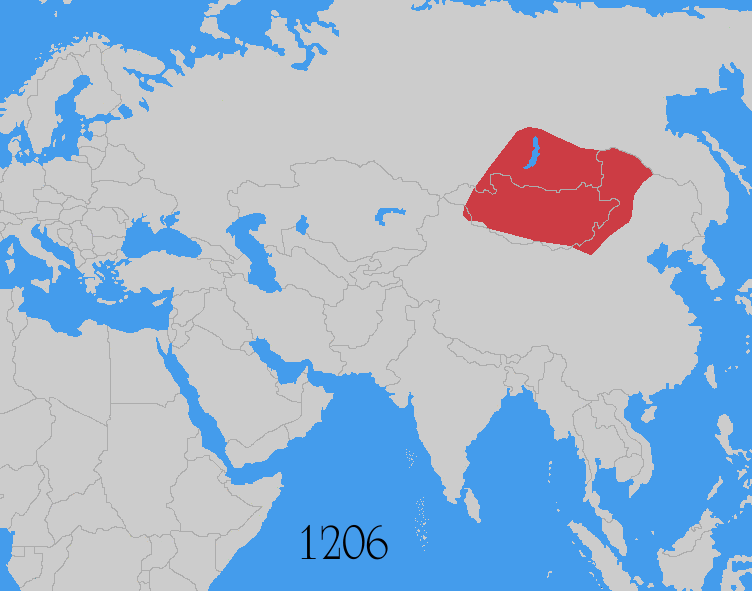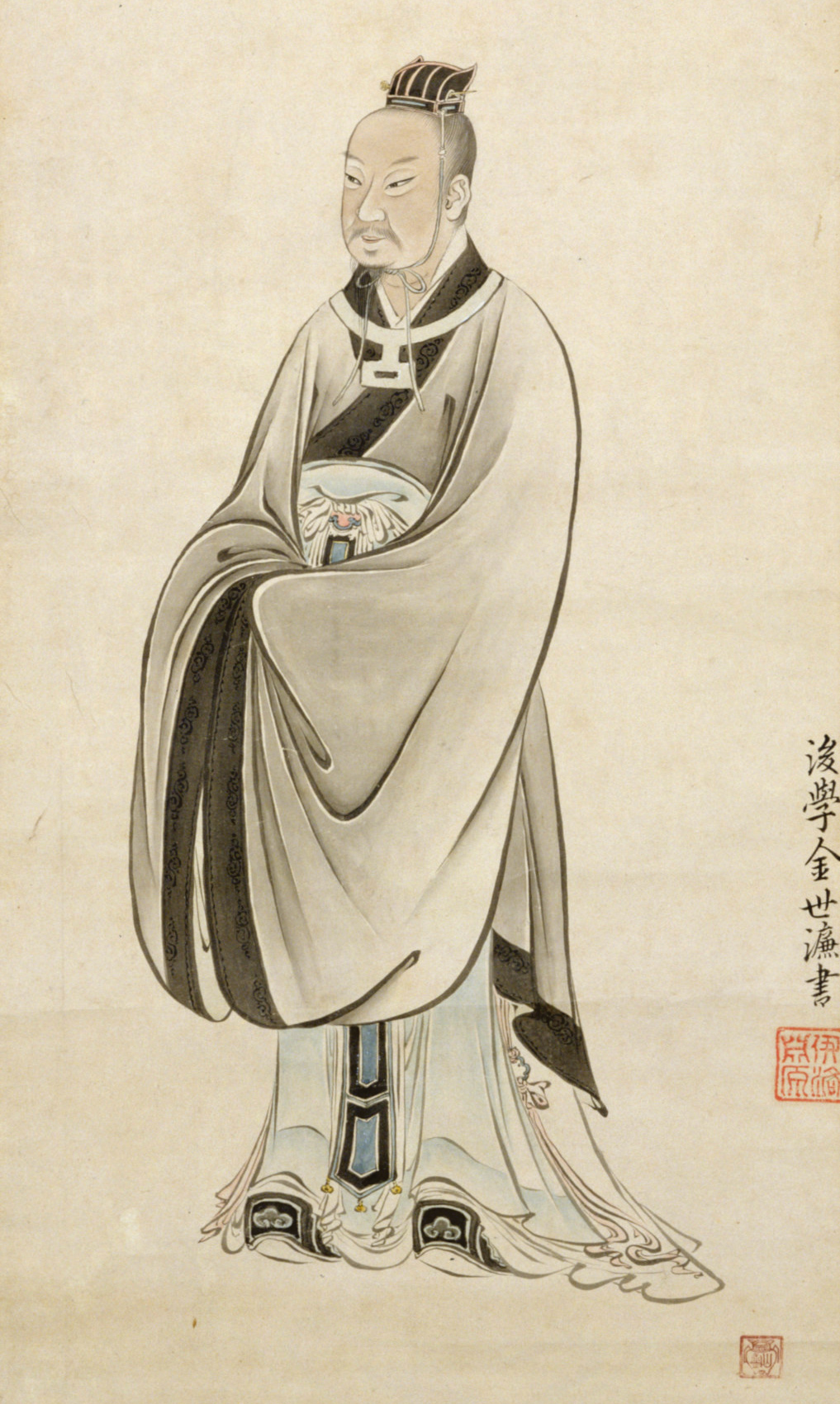|
Terra Kytaorum
{{Use dmy dates, date=January 2024 ''Terra Kytaorum'' (Land of the Cathayans) is a work for brass ensemble and percussion by the contemporary classical composer Jeffrey Ching. Its subtitle is ''Souvenir des Yuan'', which incorporates it into that composer's series of musical ''souvenirs'' based on melodic material from various Chinese dynasties: ''Souvenir des Tang'' (1997), ''Souvenir des Song'' (1994), and ''Souvenir des Ming'' (2002). The present work was completed in London on 31 December 2000. World premiere and instrumentation ''Terra Kytaorum (Souvenir des Yuan)'' was commissioned by Weltblech (World Brass), who premiered an abridged version in Berlin on 9 January 2001. It is scored for 4 trumpets, horn, 3 trombones, bass trombone, tuba, and 2 percussionists. Played uncut, the complete work, unique in scale in the brass ensemble repertoire, would last over an hour. Pseudo-historical background The work is premised on fictitious events from mediaeval history which exis ... [...More Info...] [...Related Items...] OR: [Wikipedia] [Google] [Baidu] |
Jeffrey Ching
Jeffrey Ching (, born 4 November 1965) is a contemporary classical composer. He was born in the Philippines, to Chinese parents. He is married with the operatic soprano Andión Fernández and has two children. His opera ' was given in the Theater Erfurt in 2009. Selected works *'' Concerto da camera'' *''Horologia sinica'' *''Kunstkabinett'' *''Notas para una cartografía de Filipinas'' *''Terra Kytaorum {{Use dmy dates, date=January 2024 ''Terra Kytaorum'' (Land of the Cathayans) is a work for brass ensemble and percussion by the contemporary classical composer Jeffrey Ching. Its subtitle is ''Souvenir des Yuan'', which incorporates it into that ...'' *Symphony No. 1 in C major (prem. 1981) * Symphony No. 2, "The Imp of the Perverse" * Symphony No. 3, "Rituals" * Symphony No. 4, "Souvenir des Ming" * Symphony No. 5, "Kunstkammer" References Further reading * Hila, Antonio C. "Understanding the Early Music of Jeffrey Ching: An Erudite Composer", ''Unitas'', Vol. 75, ... [...More Info...] [...Related Items...] OR: [Wikipedia] [Google] [Baidu] |
Machaut
Guillaume de Machaut (, ; also Machau and Machault; – April 1377) was a French composer and poet who was the central figure of the style in late medieval music. His dominance of the genre is such that modern musicologists use his death to separate the from the subsequent movement. Regarded as the most significant French composer and poet of the 14th century, he is often seen as the century's leading European composer. One of the earliest European composers on whom considerable biographical information is available, Machaut has an unprecedented amount of surviving music, in part due to his own involvement in his manuscripts' creation and preservation. Machaut embodies the culmination of the poet-composer tradition stretching back to the traditions of troubadour and ''trouvère''; well into the 15th century his poetry was greatly admired and imitated by other poets, including Geoffrey Chaucer and Eustache Deschamps, the latter of whom was Machaut's student. Machaut comp ... [...More Info...] [...Related Items...] OR: [Wikipedia] [Google] [Baidu] |
Mongol Invasions
The Mongol invasions and conquests took place during the 13th and 14th centuries, creating history's largest contiguous empire: the Mongol Empire ( 1206- 1368), which by 1300 covered large parts of Eurasia. Historians regard the Mongol devastation as one of the deadliest episodes in history. In addition, Mongol expeditions may have spread the bubonic plague across much of Eurasia, helping to spark the Black Death of the 14th century. The Mongol Empire developed in the course of the 13th century through a series of victorious campaigns throughout Asia, reaching Eastern Europe by the 1240s. In contrast with later "empires of the sea" such as European colonial powers, the Mongol Empire was a land power, fueled by the grass-foraging Mongol cavalry and cattle. Thus most Mongol conquest and plundering took place during the warmer seasons, when there was sufficient grazing for their herds. The rise of the Mongols was preceded by 15 years of wet and warm weather conditions from 1211 t ... [...More Info...] [...Related Items...] OR: [Wikipedia] [Google] [Baidu] |
Zisi
Zisi (; c. 481–402 BCE), born Kong Ji (孔伋), was a Chinese philosopher and the grandson of Confucius. Intellectual genealogy, teaching, criticism Zisi was the son of Kong Li (孔鯉) ( Boyu (伯鱼)) and the only grandson of Confucius. He is traditionally accredited with transmitting Confucian teaching to Mencius and writing the ''Doctrine of the Mean'', ''Biaoji'' 表記, " Ziyi" (The Black Robes") 緇衣, and "Fangji" (The Record of the Dikes) 坊記, presently chapters of the ''Liji''. (Since Zisi's dates of life do not overlap with those of Mengzi, it has been suggested that the intermediary role in the transmission was played by Shi Shuo 世碩.) Where his grandfather began to distinguish between true and supposed knowledge, Zisi proceeded upon meditations on the relativity in human knowledge of the universe. He attempted to analyse as many types of action as possible, and believed that wise people who are conscious of their moral and intellectual duties can copy ... [...More Info...] [...Related Items...] OR: [Wikipedia] [Google] [Baidu] |
Zengzi
Zeng Shen (505–435 BC), better known as Zengzi (Master Zeng), courtesy name Ziyu (), was a Chinese philosopher and disciple of Confucius. He later taught Zisi (Kong Ji), the grandson of Confucius, who was in turn the teacher of Mencius, thus beginning a line of transmitters of orthodox Confucian traditions. He is revered as one of the Four Sages of Confucianism. Life Zeng Shen was 46 years younger than Confucius. He was a native of South Wu City in the State of Lu, and was the son of Zeng Dian, one of the earliest disciples of Confucius. When he was sixteen, he was sent by his father to study under Confucius. Confucians later considered him to be his second most senior student, after Yan Hui. Duanmu Ci said of him, "There is no subject which he has not studied. His appearance is respectful. His virtue is solid. His words command credence. Before great men he draws himself up in the pride of self-respect. His eyebrows are those of longevity." He was noted for his filial piet ... [...More Info...] [...Related Items...] OR: [Wikipedia] [Google] [Baidu] |
Yan Hui (disciple Of Confucius)
Yan Hui (–481 BC) was a Chinese philosopher. He was the favorite disciple of Confucius and one of the most revered figures of Confucianism. He is venerated in Confucian temples as one of the Four Sages. Names Yan Hui is also known by his courtesy name Ziyuan and as Yan Yuan, a combination of his surname and courtesy name. He is also reverently referred to as Master Yan or Yanzi. Life Yan Hui was a native of the state of Lu. His father Yan Wuyou (Yan Lu) was one of the earliest disciples of Confucius. Yan Hui was about 30 years younger than Confucius, and became a student of the Master at a young age. Yan Hui was Confucius' favorite disciple. "After I got Yan Hui," Confucius remarked, "the disciples came closer to me." We are told that once, when he found himself on the Nang hill with Yan Hui, Zilu, and Zigong, Confucius asked them to tell him their different aims, and he would choose between them. Zilu began, and when he had done, the master said, "It marks your bravery." ... [...More Info...] [...Related Items...] OR: [Wikipedia] [Google] [Baidu] |
Qing
The Qing dynasty ( ), officially the Great Qing,, was a Manchu-led imperial dynasty of China and the last orthodox dynasty in Chinese history. It emerged from the Later Jin dynasty founded by the Jianzhou Jurchens, a Tungusic-speaking ethnic group who unified other Jurchen tribes to form a new "Manchu" ethnic identity. The dynasty was officially proclaimed in 1636 in Manchuria (modern-day Northeast China and Outer Manchuria). It seized control of Beijing in 1644, then later expanded its rule over the whole of China proper and Taiwan, and finally expanded into Inner Asia. The dynasty lasted until 1912 when it was overthrown in the Xinhai Revolution. In orthodox Chinese historiography, the Qing dynasty was preceded by the Ming dynasty and succeeded by the Republic of China. The multiethnic Qing dynasty lasted for almost three centuries and assembled the territorial base for modern China. It was the largest imperial dynasty in the history of China and in 1790 the fou ... [...More Info...] [...Related Items...] OR: [Wikipedia] [Google] [Baidu] |
Quodlibet
A quodlibet (; Latin for "whatever you wish" from ''quod'', "what" and '' libet'', "pleases") is a musical composition that combines several different melodies—usually popular tunes—in counterpoint, and often in a light-hearted, humorous manner. There are three main types of quodlibet: * A ''catalogue quodlibet'' consists of a free setting of catalogue poetry (usually humorous lists of loosely related items). * In a ''successive quodlibet'', one voice has short musical quotations and textual quotations while the other voices provide homophonic accompaniment. * In a ''simultaneous quodlibet'', two or more pre-existing melodies are combined. The simultaneous quodlibet may be considered a historical antecedent to the modern-day musical mashup. History Renaissance The quodlibet originated in 15th-century Europe, during a time when the practice of combining folk tunes was popular. Composer first used the term in a specifically musical context in 1544. Francisco de Peñalo ... [...More Info...] [...Related Items...] OR: [Wikipedia] [Google] [Baidu] |
Gagaku
is a type of Japanese classical music that was historically used for imperial court music and dances. was developed as court music of the Kyoto Imperial Palace, and its near-current form was established in the Heian period (794-1185) around the 10th century.History of gagaku Nihon gagakukai Today, it is performed by the in the . Gagaku consists of three primary repertoires: #Native [...More Info...] [...Related Items...] OR: [Wikipedia] [Google] [Baidu] |
Solage
Solage (; or Soulage), possibly Jean , was a French composer, and probably also a poet. He composed the most pieces in the Chantilly Codex, the principal source of music of the ''ars subtilior'', the manneristic compositional school centered on Avignon at the end of the century. Life Nothing is known about Solage's life, beyond what can be inferred from the texts to his music. Even his name is a puzzle. One possibility is that the single name "Solage" is a nickname or pseudonym, similar to others known from the period, such as Grimace or Hasprois. "Solage" and "soulage" are variant spellings of Old French ''solaz'', ''solace'', meaning "consolation", "joy", or "entertainment". In the refrain to the text of ''Calextone qui fut dame'', the composer refers to himself with such a double meaning, using the spelling "soulage". However, the possibility that it is a genuine name cannot be ruled out. One of the attributions in the Chantilly Codex includes the initial ''J'' wrapped into ... [...More Info...] [...Related Items...] OR: [Wikipedia] [Google] [Baidu] |
Huang Zuo
Huang or Hwang may refer to: Location * Huang County, former county in Shandong, China, current Longkou City * Yellow River, or Huang River, in China * Huangshan, mountain range in Anhui, China * Huang (state), state in ancient China. * Hwang River, in Gyeongsangnam-do, South Korea People * Emperor of China, titled as Huángdì (皇帝) * Huang (surname) (黄 / 黃), Chinese surname with several Vietnamese variants * Hwang (surname) (黃), (皇), a common Korean family name Other uses * Huang (jade), a jade arc-shaped artifact that was used as a pendant * Fenghuang, mythological birds of East Asia * Huang, a character in the anime cartoon ''Darker than Black'' * Hwang Seong-gyeong, a List of Soulcalibur characters#Hwang, character in the ''Soulcalibur'' video game series * Huang (Coca-Cola), a List of Coca-Cola brands, brand of Coca-Cola * Huang Harmonicas, a Chinese-based manufacturer of harmonicas, founded by noted harmonicist Cham-ber Huang * The Radical 201, 201st rad ... [...More Info...] [...Related Items...] OR: [Wikipedia] [Google] [Baidu] |


